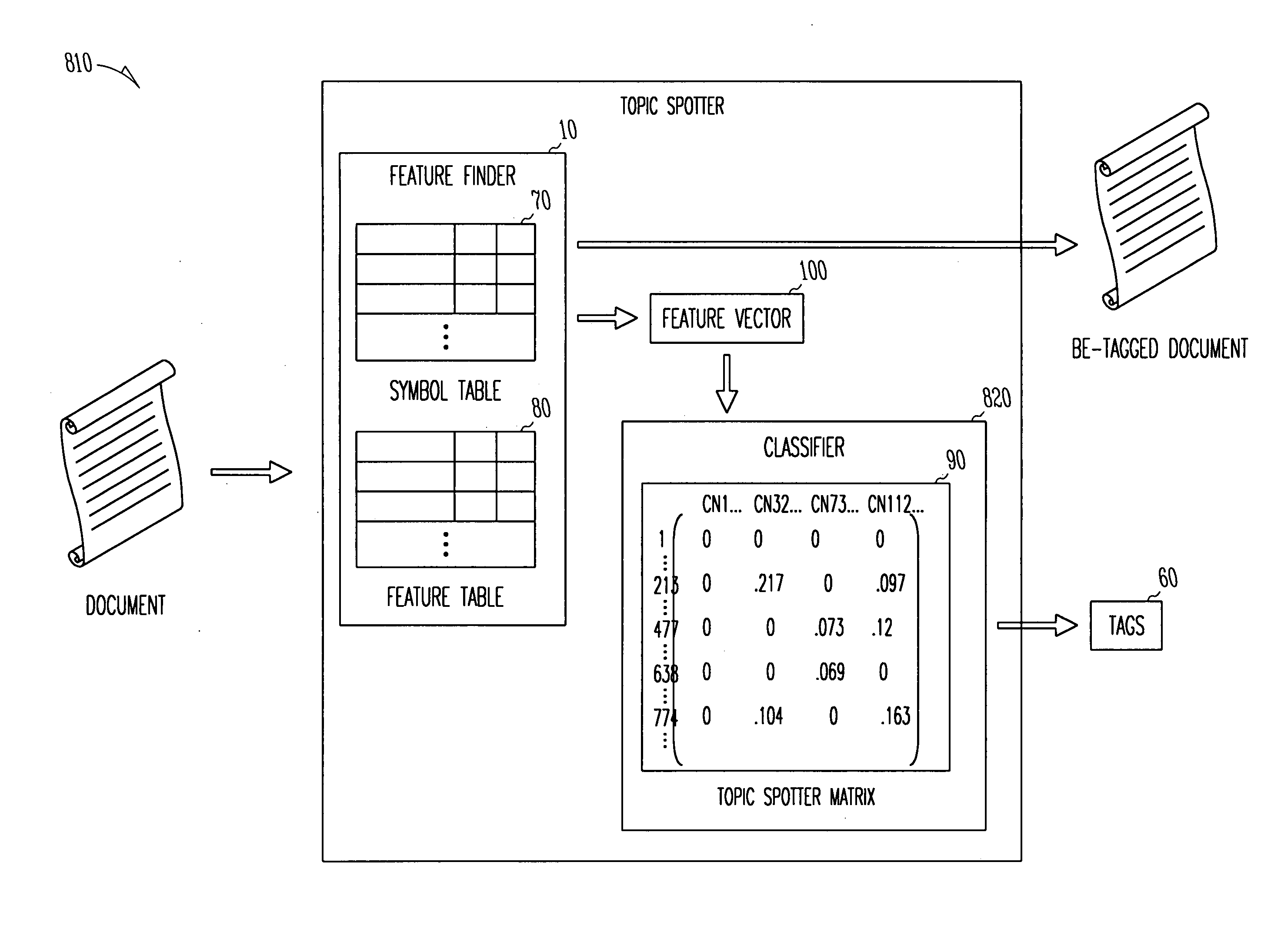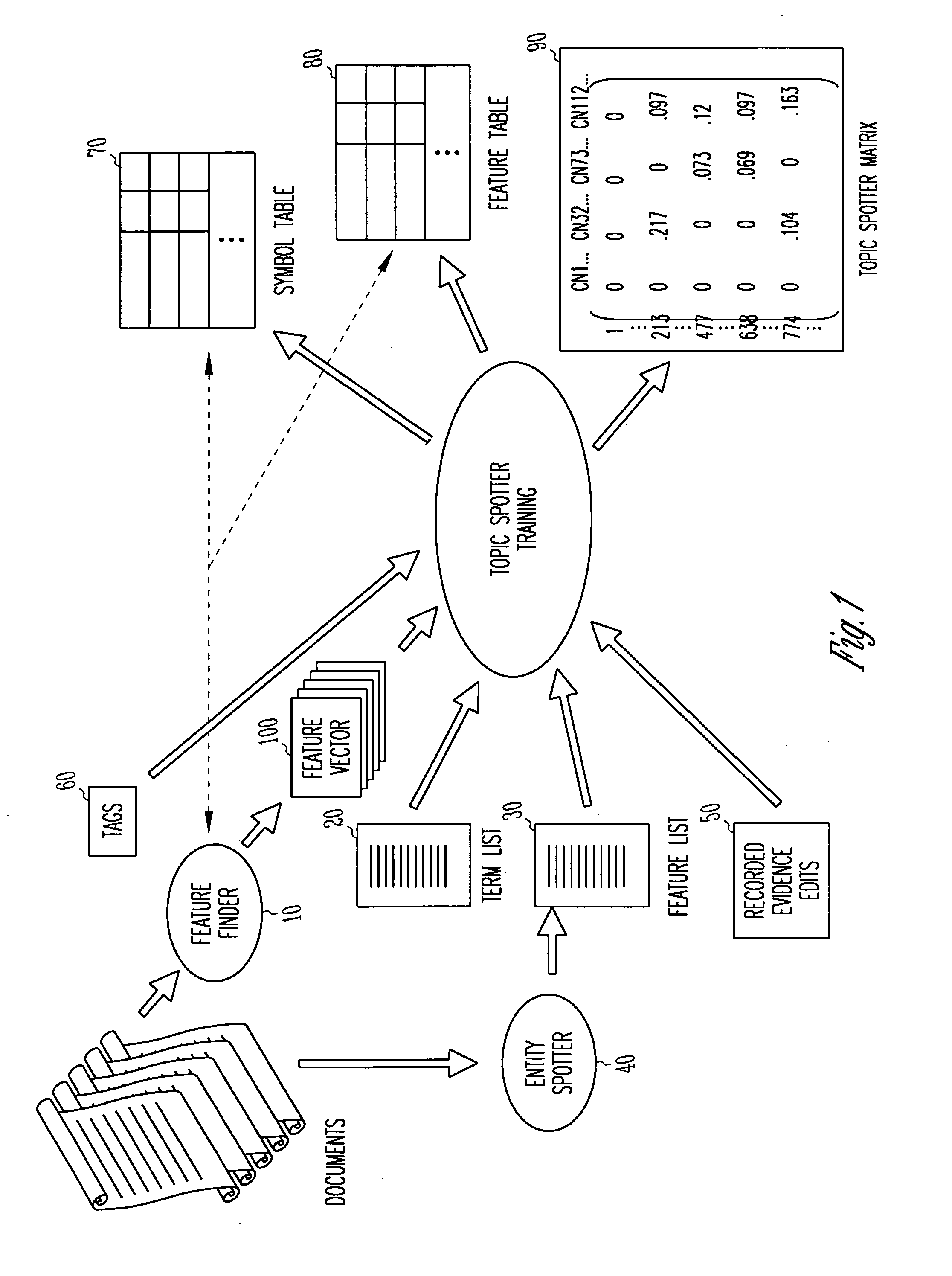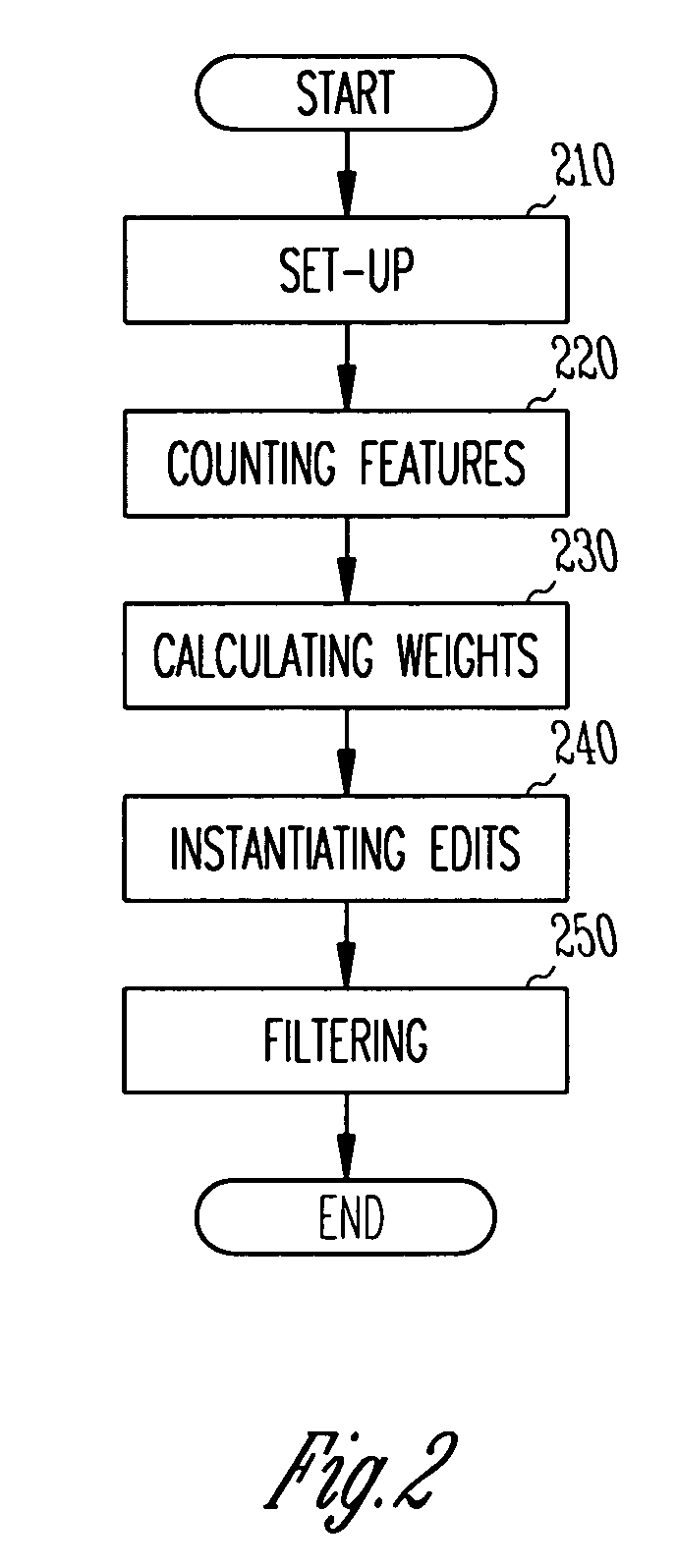System and method for automatically classifying text
a text classification and automatic classification technology, applied in the field of text classification, can solve the problems of inaccuracy of retrieved information, slow execution speed, and limited coverage rang
- Summary
- Abstract
- Description
- Claims
- Application Information
AI Technical Summary
Benefits of technology
Problems solved by technology
Method used
Image
Examples
Embodiment Construction
[0023] In the following detailed description, reference is made to the accompanying drawings that form a part thereof, and in which is shown by way of illustration a specific embodiment in which the invention may be practiced. This embodiment is described in sufficient detail to enable those skilled in the art to practice the invention and it is to be understood that other embodiments may be utilized and that algorithmic changes may be made without departing from the scope of the present invention. The following detailed description is, therefore, not to be taken in a limited sense.
[0024] Turning first to the nomenclature of the specification, the detailed description which follows is represented largely in terms of processes and symbolic representations of operations performed by conventional computer components, including a central processing unit (CPU), memory storage devices for the CPU, and connected pixel-oriented display devices. These operations include the manipulation of ...
PUM
 Login to View More
Login to View More Abstract
Description
Claims
Application Information
 Login to View More
Login to View More - R&D
- Intellectual Property
- Life Sciences
- Materials
- Tech Scout
- Unparalleled Data Quality
- Higher Quality Content
- 60% Fewer Hallucinations
Browse by: Latest US Patents, China's latest patents, Technical Efficacy Thesaurus, Application Domain, Technology Topic, Popular Technical Reports.
© 2025 PatSnap. All rights reserved.Legal|Privacy policy|Modern Slavery Act Transparency Statement|Sitemap|About US| Contact US: help@patsnap.com



